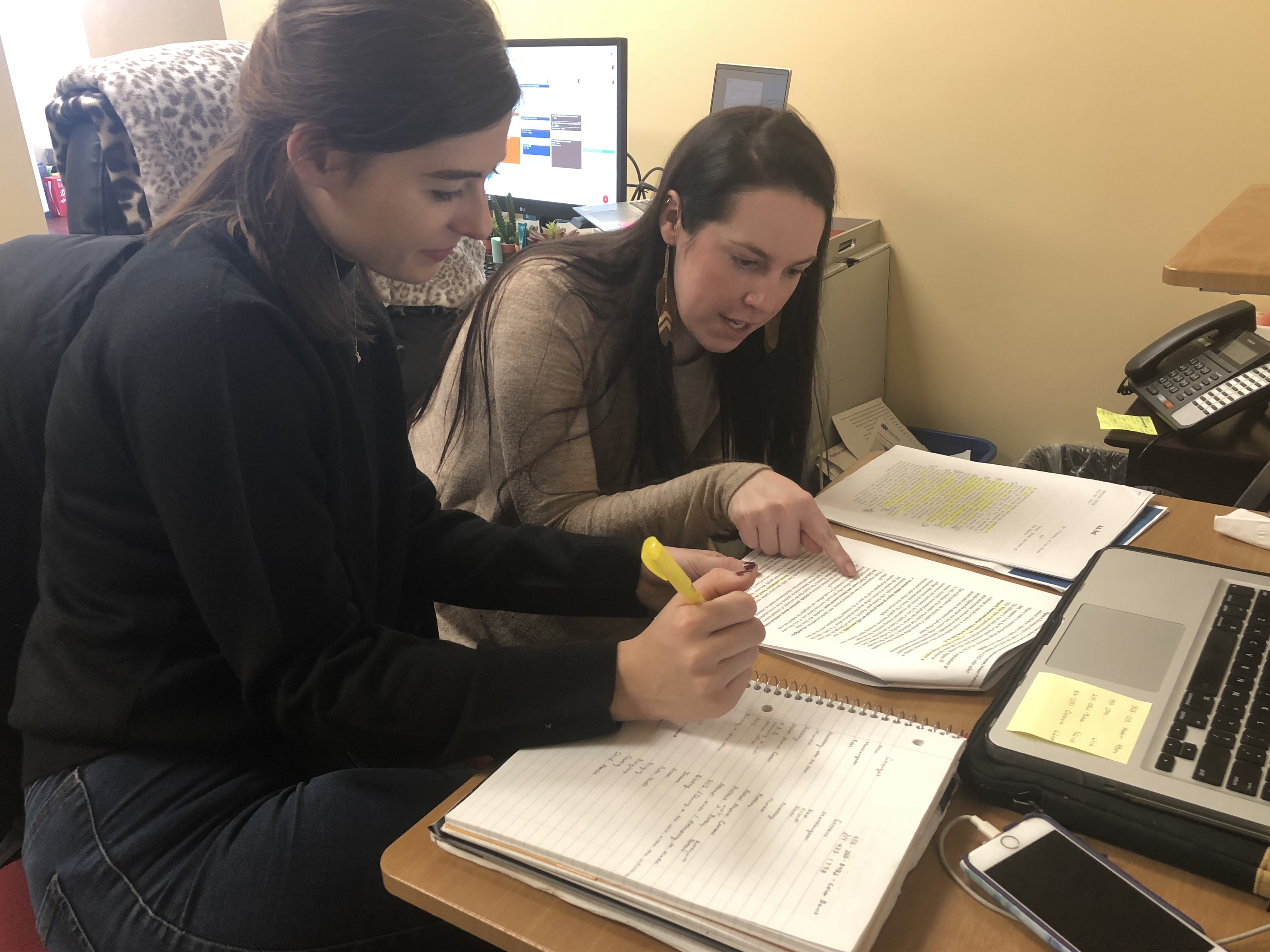 Hand written letters can be particularly effective in influencing legislators’ views. Why? Who tends to hand write things? You guessed it! Older Oklahomans write and older Oklahomans vote. Write to give the legislators one more good reason to take you seriously!
Hand written letters can be particularly effective in influencing legislators’ views. Why? Who tends to hand write things? You guessed it! Older Oklahomans write and older Oklahomans vote. Write to give the legislators one more good reason to take you seriously!
Writing to legislators also offers an opportunity to maintain contact and keep your issues on the front burner even when you cannot meet personally. Find your two state legislators here! (See also Talking to Legislators Face to Face)
Writing an Effective Letter
KEEP IT BRIEF
— Keep letters to one page. Try to discuss only one bill or issue in a letter. (Though the budget crisis is complicated, it can still be considered one issue.)
IDENTIFY YOURSELF
— Begin with a brief introduction of yourself. Use a simple statement, such as “I am a third-grade teacher at _______ elementary school” or “On behalf of my fellow members of Together Oklahoma in your District ____….” Tell them if you are their constituent and if you voted for them or will be voting in an upcoming election.
BE POLITE
— Even if you’ve disagreed with this legislator in the past, they’ll be more likely to be persuaded if they feel that you are being respectful of them as a fellow human being. (That DOES NOT mean you have to lie or be fake. I sometimes think of persuading my legislators like talking to my strong-willed but caring grandma. Sometimes I have to persuade her to change her old-fashioned behavior. If I come off like a condescending jerk, those conversations go absolutely nowhere!)
GET TO THE POINT
— Follow your introduction with a brief statement of your issue or concern, such as “I urge your support for HB_____, which will ________.” Be specific! Include the bill number if you have one AND what it is about. They can’t memorize all 2,000 bill numbers each session. Follow your opening paragraph with a concise explanation of why you support or oppose the particular bill or issue. A few strong, well-thought-out arguments are much more effective than a laundry list of reasons to support or oppose a bill. Whenever possible, use bullet points to outline your arguments. (Trust me, more pages does not mean you’ve necessarily communicated more. Whether we like it or not, a few quality points that touch on the concerns that matter to that legislator are more important than a huge quantity of evidence.)
RELATE IT TO HOME
— Help the legislator understand why your position is important to his or her constituents. Include specific facts about how a bill will impact you and/or people in the legislator’s district. If possible, include a local anecdote illustrating the problem you are seeking to address. Avoid the use of form letters or generic postcards — use your own knowledge and experience to inform the legislator. (You know more than you think you do, so be authentically you!)
REMIND THEM OF YOUR SPECIFIC REQUEST
You want them to know the one important thing from your letter and to take action. Examples: “Can I count on you to reject a bad budget that doesn’t include new revenues?” or “Please oppose HB 2665 for the sake of me and my family.” Be ready to take note of how they vote, so you can follow up with another letter and HOLD THEM ACCOUNTABLE.
ALLOW FOR FOLLOW-UP
— Include specific contact information and offer to act as a resource should the legislator or staff have questions or need additional information. Where appropriate, state in the letter that you will follow up with a telephone call, ask them to call you back, or ask for someone from their office to contact you to set up a small group meeting with you and your fellow constituents either at the Capitol OR in the district.
THANK THEM FOR THEIR TIME AND FOR SOMETHING MORE SPECIFIC IF YOU CAN.
We’re here to win flies with honey instead of vinegar, right? Chances are high that if you look on their legislator web page, you can find at least one thing they’ve done that you like. You can also ask your fellow constituents in Together Oklahoma what good you can highlight about your legislator.
Address your letter correctly — See the details on addressing your letter below.
Addressing Written Correspondence
OKLAHOMA STATE SENATORS
The Honorable (full name)
Oklahoma State Senate
2300 N Lincoln Blvd,
Oklahoma City, OK 73105
OKLAHOMA STATE HOUSE OF REPRESENTATIVES
The Honorable (full name)
Oklahoma State House of Representatives
2300 N Lincoln Blvd # 401,
Oklahoma City, OK 73105
Using E-mail
E-mail can be an easy and effective tool for communicating with legislators. The tips outlined above for writing letters to legislators also apply to e-mails: keep them brief and to the point, with facts and anecdotes relevant to the legislator’s district.
Avoid informal language — E-mail to a legislator should be treated as seriously as a written letter. Resist the temptation to use the informal language and symbols often associated with e-mail communications. Never use impolite language or make “demands”; instead, you can “urge”, “encourage”, or simply “ask” for their support on your issue. Legislators are much more likely to hear us when we express our needs clearly.
Include your full address and zip code — Make sure the text of your e-mail includes your full name and street address, including zip code. Many legislative offices screen e-mails for address information identifying the sender as a constituent. E-mails that appear to come from outside the district are unlikely to be read and may be blocked by filtering programs.
Example letter/email
Dear (Representative ___________ / Senator __________ ),
Thank you for your time. I am your constituent, I voted for you (or I will be voting), and I appreciate that you ( ________something they did that you like________).
I am writing to you today because I’d like to ask you to (specific ask such as Vote YAY/Vote NAY for ____(bill number)___ that would _____(bill description)_____ because it would ______.)
Please write back to me or you can call me at _____________ to let me know I can count on you to do _____ on this issue.
Thank you for your time and consideration.
Your constituent,
(your name)
(your address)
You can influence legislators’ views
Remember, handwritten letters and personalized emails can show time and consideration. When you write to tell them who you are, why you appreciate them, what is important to you, what you want them to do, and how you are going to follow up, you are making a clear statement that you understand that their job is important to what happens in your daily life. State legislators will often respond to your letter, and even if they don’t agree with you, they take note of how many people, especially constituents, write to them expressing opinions about each issue. Keep track of your correspondence with them the same way you keep track of the way they vote so you can HOLD THEM ACCOUNTABLE! Find your two state legislators here!
(This blog post was adapted from this source.)







